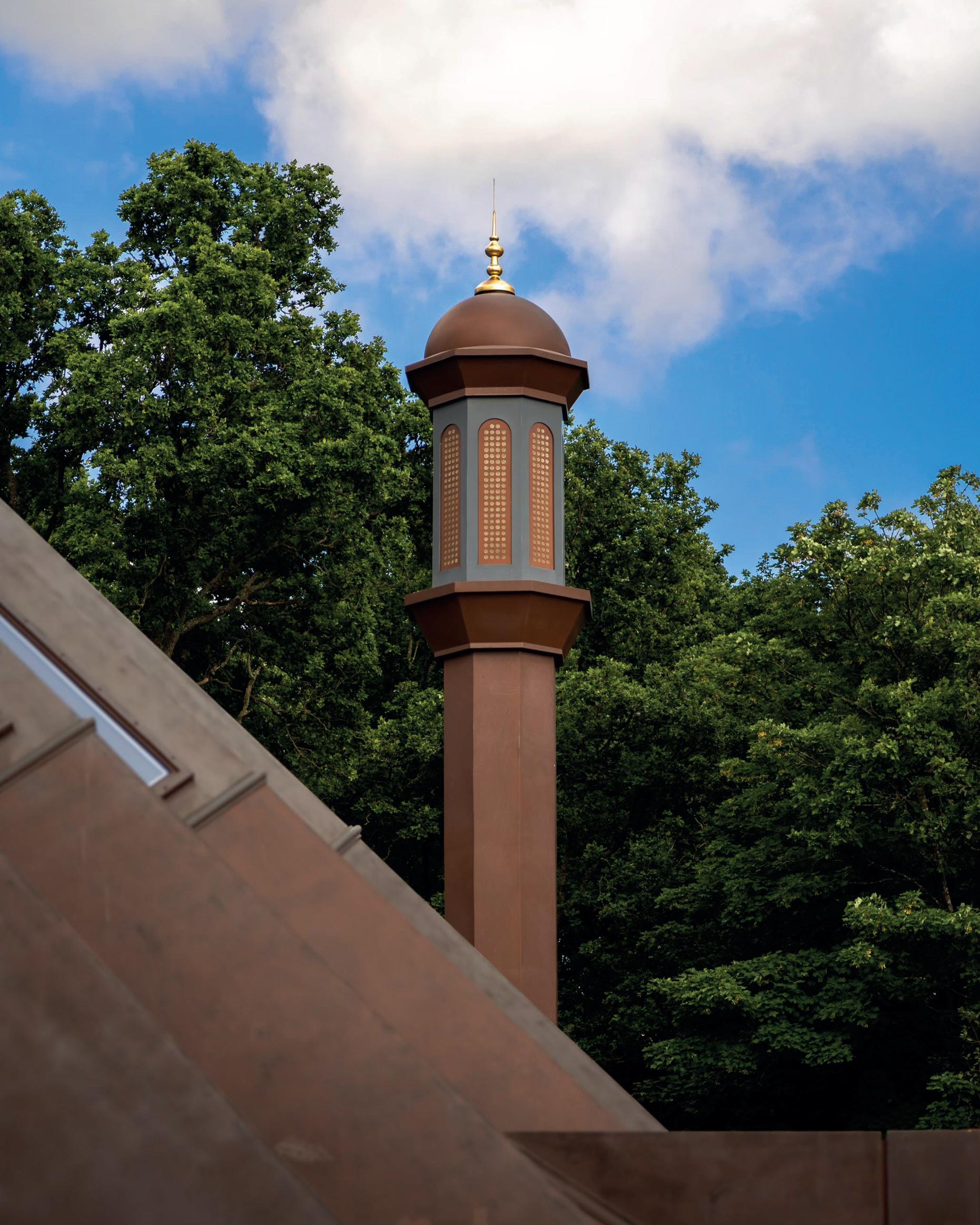
4 minute read
Tarbiyat camp and national ijtema, MKA Philippines
Majlis Khuddam-ul-Ahmadiyya Philippines held a 5-day annual tarbiyat camp from 23 to 27 December 2022, and the annual ijtema on 28-29 December 2022 at the Baitul Ahad Mosque, Peace Compound, Zamboanga City.
The tarbiyat camp was conducted with separate programmes for atfal and khuddam with a focus on daily congregational prayer, Islamic customs, Islamic history and other topics related to Islamic knowledge and moral upbringing. The lecturers included various missionaries and mu’allimeen of the Jamaat, including Abdul Halim Suhurun, Mohammad Razari Ahmadul, Faisal Heding, Abdul Mukhlis Ahmad, Talha Ali, and my humble self. The goals of the camp included increasing the knowledge of the participants and having them discuss issues that are pertinent to them in today’s society.
The daily schedule during the camp consisted of the day starting with the offering of Tahajjud and Fajr prayers, followed by dars of the Holy Quran and breakfast. There were regular classes from 8am to 4pm with a break for prayers and lunch. Some of the topics discussed during the camp included the importance of Khilafat, learning Arabic and the translation of salat, Islamic customs after someone passes away, how to correctly perform ablution before prayer, the importance of the segregation of men and women in gatherings, modesty, the importance of keeping the mosque clean, the prohibition of drugs and alcohol in Islam and respect for parents and elders. There were also lectures on the history of Islam and Ahmadiyyat, Nizam-e-Jamaat, and teaching various arguments in support of the beliefs of Jamaat-e-Ahmadiyya.
Throughout the camp, there was a question-and-answer session between Maghrib and Isha prayers with the scholars of the Jamaat. This session was extremely valuable to the attendees, as they were able to ask questions that they may not have felt comfortable asking otherwise. Various contemporary issues were discussed in these sessions.
One of the goals of the tarbiyat camp was to memorise the Arabic salat and learn its translation. By the grace of Allah, five students who did not previously know the Arabic text of the salat memorised it during the event and 13 students (who did not previously know it) memorised the complete translation of the Salat during the camp. A practical demonstration of how to perform ghusl of a deceased body at the time of janazah was also given, which was extremely beneficial for all.
The tarbiyat camp was followed by the annual ijtema of Majlis Khuddam-ulAhmadiyya. During the ijtema, atfal and khuddam participated in various academic and sporting competitions.
A total of 63 khuddam and 14 atfal from six majalis attended the tarbiyat camp and ijtema. Almost all of them stayed at the location of the ijtema during the programmes.
The real Messiah did not conform to the imaginary Messiah that they had pictured for themselves, being misled by their erroneous interpretations and traditions. Expecting the advent of an earthly king possessing great splendour and authority, they failed to recognise him in the lowly Nazarene, who was an associate of publicans and sinners and who scathingly denounced traditions and beliefs that were dear to the Jewish mind. That was a fatal mistake that they committed. Indeed, that is the mistake that the deniers of prophets always commit and it is this mistake that proves to be a stumbling block for them and prevents them from accepting the prophets when they come.
So with such examples before us, it is meet for us to avoid such mistakes so that we may not in a similar way be deprived of the inestimable boon of accepting the true Messiah.
We should not depend on our own interpretation of prophecies. History affords ample evidence of the fact that men have always erred when they have tried to explain prophecies before their completion. Those who have done so have plunged beyond their depth and the result has been that they have been lost in the abyss of error. Such prophecies can only be explained by the events, and it is a great error to fix upon any definite interpretation when the events foretold are yet in the womb of time.
It is gratifying to learn that many Christian writers have been shrewd enough to learn this great lesson that the history of prophecies so unmistakably teaches us. The Right Reverend Thomas Newton, DD, Lord Bishop of Bristol, who has written a big book on the prophecies of the Bible, says:
“We cannot frame any conception of how Christ will be manifested in glory, how the little horn will be given to the burning flames, or how the saints will take the kingdom, and possess it for ever and ever. It is in the nature of such prophecies not to be perfectly understood, until they are fulfilled. The best comment upon them will be their completion.”
Irenaeus, as quoted by the Right Reverend Thomas Newton, says in a like case, “It is surer and safer to wait for the completion of the prophecy than to conjecture and divine about it.” Mr J Liddel Kelly, who seems to have made a special study of the subject and who published a pamphlet entitled “The Last Days” in 1913, says:
“The announcement that the end of all things is at hand conjures up in many minds a vision of judgements and catastrophes, culminating in the sun and stars falling from their places and in the earth melting with fervent heat. At the outset, it should therefore be clear that there is no ground for these superstitious fears. The end, which is now approaching and which is to be the prelude of a new heaven and a new earth, is the close of the present age of dispensation. The divine event to which the whole creation moves is not a catastrophe but a renewal or new birth. […] The coming great revolution will be accomplished without any appearance of direct divine intervention.
“The world and its people will go on very much as now. The signs in the heaven and in the earth will be apparent only to the few. The great majority will be scoffers and sceptics almost to the last.”
Elsewhere in the same pamphlet, he says: “No sound of trumpets or of drums Shall mark his advent when he comes
To claim his crown and bless his own; No angels shall proclaim his birth.”
(Transcribed by Al Hakam from the original, published in The Review of Religions [English], January, February and March 1923)










